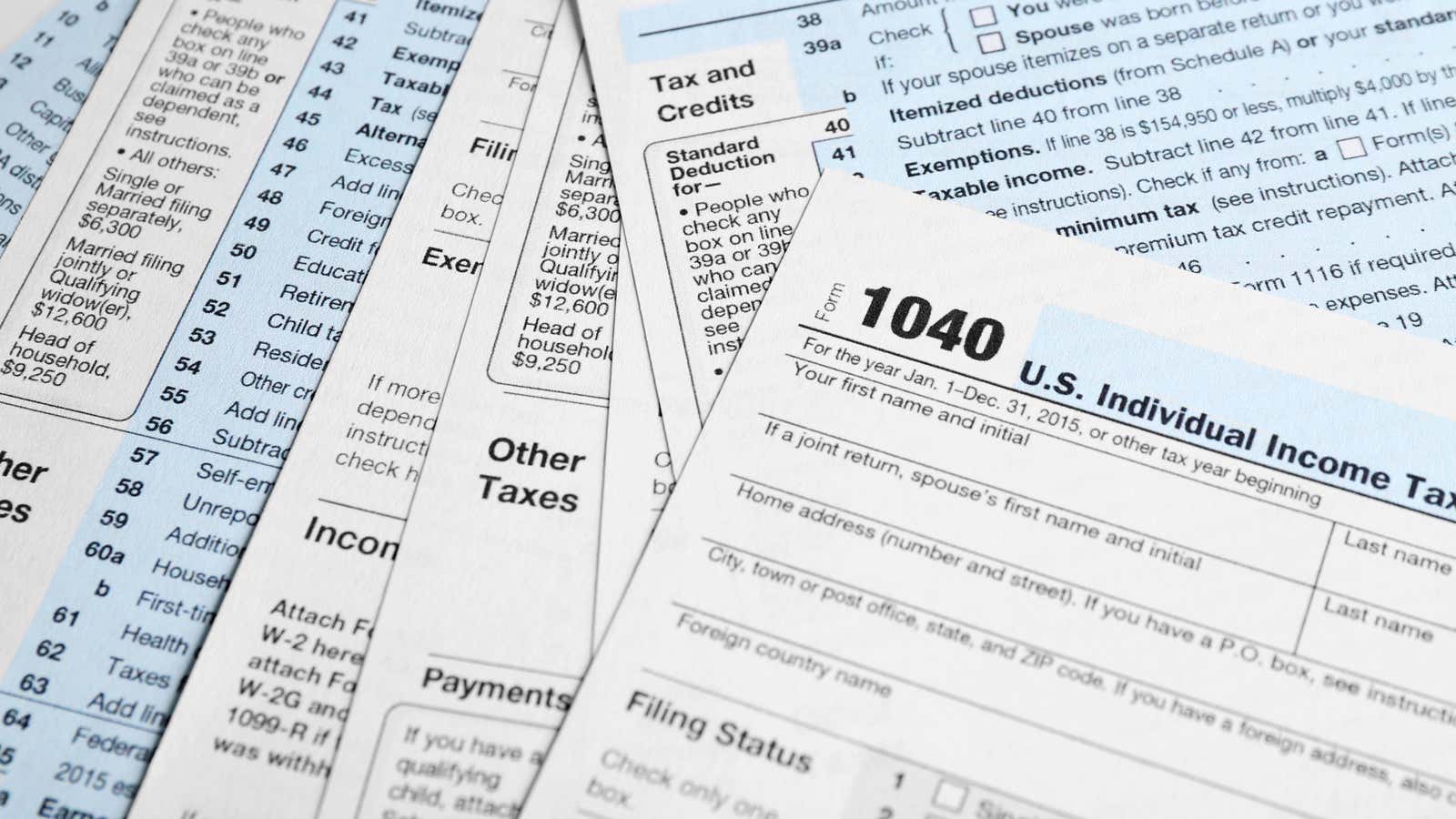What to Do If You Haven’t Filed Your Tax Return in Years

There are no late filing penalties if the IRS owes you money. But if you owe them money, things can get very ugly and very quickly. Here’s what you need to know and do if you haven’t filed your tax return in years.
First, if you think you are owed a refund, your main concern should be leaving money on the table. According to the IRS, a surprising number of people are missing out on the money they owe as, as of July last year, $ 1.5 billion in unpaid amounts remained unpaid. But the chance to claim your share of that money doesn’t last forever – you only have a three-year window. Since there is no penalty for late returns, you will definitely want to do so if you owe money.
But let’s say you haven’t filed and owe money. Or maybe you filed but didn’t pay your debt. Either way, you may be in trouble with the IRS.
What happens if you don’t pay taxes
Failure to pay late taxes is technically an offense, and you could be sent to prison for up to a year, according to the Cornell Law School of Legal Information . More often than not, however, you just have to pay the fines and interest on taxes that you owe, but this can add up quickly.
Going to jail is highly unlikely, as David Cowley, Certified Public Accountant (CPA) and a partner at Fraim, Cawley & Company, CPAS, explained to LendingTree :
“If you commit tax fraud by either lying on your tax returns or not filing them at all, you can be prosecuted, but taxpayers will never go to jail for not having enough money to pay taxes.”
The government may be more lenient when it comes to jail time, but the fines for non-filing are significant. The IRS charges up to 5% per month on your debt, but no more than 25%. You must also pay interest (see IRS for the current rate in the latest updates on this page ) along with a 0.5% non-payment penalty on your unpaid taxes for each month you don’t pay them, up to a whopping 25% … The IRS has a full description of its late filing fees and penalties here .
If you miss a payment, the IRS will send you a letter. They will send you at least two billing notices before the collection process begins , and then things can get pretty ugly. The IRS can freeze your bank accounts, withhold your wages, and even seize your home. Although the government has up to six years to file a criminal tax charge against you, there is no time limit on how long the IRS can prosecute you for unpaid taxes.
How to fix it
There are some circumstances in which the IRS can cancel your fines, although you still have to pay what you owe. You need to prove “reasonable cause” as stated on the IRS website :
Making a payment in good faith as soon as possible can help establish that your original failure to pay on time was due to a reasonable cause and not willful neglect. If you are billed for a fine and have a reasonable reason to reduce the penalty, please send an explanation along with the invoice to your service center or call us at 800-829-1040 for assistance. The IRS does not usually reduce interest fees, and they continue to accumulate until all taxes, penalties and interest assessed are paid in full.
The IRS offers several “typical situations” in which you can request:
- Fire, accident, natural disaster or other disturbance
- Inability to get records
- Death, serious illness, incapacity or inevitable absence of the taxpayer or immediate family member of the taxpayer
- Another reason that you have used all of your usual business prudence and discretion to meet your federal tax obligations, but you have not been able to do so nonetheless.
Note: While the COVID-19 pandemic is not officially listed on the IRS page, it looks like it could be used as a reasonable cause as it relates to disaster relief, according to Accounting Today .
In any of these scenarios, you will likely need to provide documentation (such as court records or a letter from a doctor). When you are ready to file and pay, you will need to file returns for each missed year. If you have old pay stubs, 1099 or W-2, obviously, you want to collect as many of these documents as possible. If you do not have all the information you need to file, you will have to provide your assumptions about your income, deductions, filing status, and so on. You can also request a transcript from the IRS to obtain information from any W-2 or 1099 that an employer has filed on your behalf.
After reports are filed for each year you are late in payment, pay off your outstanding taxes and fines. The IRS offers short term (120 days or less) and long term payment plans if you cannot pay all at once. There are set fees for long term payment plans, a summary of which can be found here .
If you cannot afford to pay taxes and fines, consider contacting the IRS to develop an installment plan. There is also something called a “ compromise offer,” which is a request to consider accepting an amount that is less than the entire amount owed.
This post was originally published in 2017 and was updated on October 15, 2020 to provide more recent information on taxes and the pandemic.